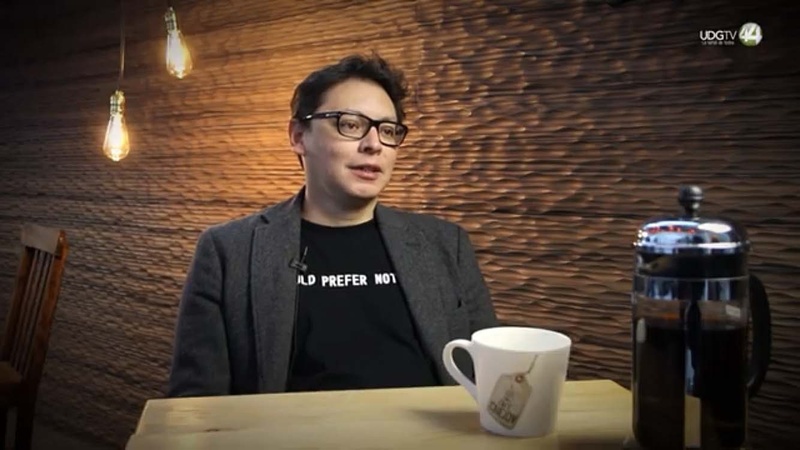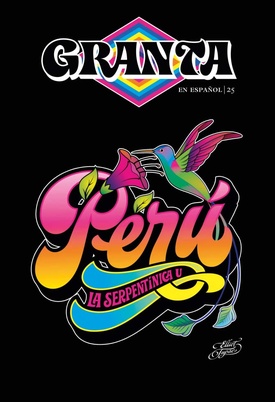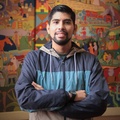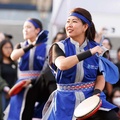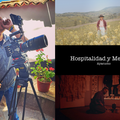His days pass in the academic world, in Viña del Mar, a city in the interior of Chile where he leads a peaceful life and where the word writer sounds less than the word book or reading.
This is the second migration of Carlos Yushimito (Lima, 1977), a Peruvian Nikkei recognized for his short story work who has recently presented The inevitable weight of pigeons (Seix Barral, 2023), ten stories that arrive after nearly ten years without publish, but who have lived with it for a long time in their travels and moves.
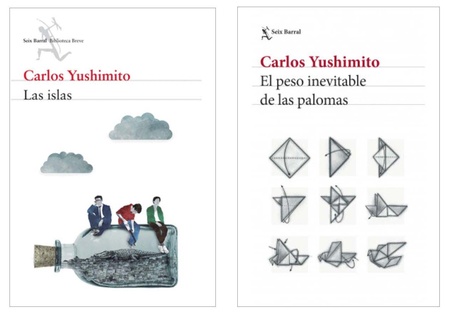
“Writing is something very personal, but publishing, on the other hand, is making the private public,” says Yushimito, who admits feeling comfortable away from the life of a writer in this third residence, after living in Peru and having migrated to the United States, where he remained for nearly ten years; a comfortable space for free reading, academic research and raising your daughter.
“Parenthood has a different temporal demand. It is an experience that changes you radically and pushes you into certain silences. “It distances you from what you have done before.”
For Yushimito this biological experience is closely associated with creation. “Writing is, by its very nature, narcissistic and every parent has to die a little to give rise to that new relationship with their children.”
In her latest book, a story like “The Prefecture” stars a Nikkei girl who must survive the desert, that familiar landscape, strongly associated with Peru, to which she has returned in this book. “Children are the feature of a biographical continuity that you begin to accept with gratitude,” the writer thinks. It is inevitable to think about the past when looking to the future.
Migrant writer
When he left Peru, Carlos Yushimito had a book circulating ( The Islands , published in 2006) and in 2010 he was already chosen among the best writers in Spanish under 35 years of age by the British magazine Granta , along with the Chilean Alejandro Zambra, the Argentine Samanta Schweblin and his compatriot Santiago Roncagliolo. Last year, the same magazine selected him among 42 Peruvian writers who reflect the diverse literature of their country (he is accompanied by Karina Pacheco, Katya Adaui, Marco Avilés, among others).
“After Granta, the public life that I agreed to lead for a while ended up saturating me; These ten years without publishing respond, in large part, to that experience,” confesses Carlos, who went on to publish a novel project titled Creaturas aladas in said magazine. The text, abandoned then, survived in part until reappearing in the form of a story in this last book.
For him it is common to start stories and abandon them, although others have managed to survive and adhere to his work in these years, during which the change of landscape typical of his travels has influenced his work. "The first thing that happens when we migrate is that one becomes familiar with new spaces and an immediate effect of this is that our gaze adapts to the things we see."
In the United States, for example, he associated himself with the forests and lush vegetation of the north, without which he would not have been able to write a book of stories like The Forests Have Their Own Gates (Demipage, 2014). It was a time when he was studying and working thanks to a North American scholarship, which provides, as he confesses, a lot of financial protection.
“That allowed me to dedicate many hours to writing, an advantage that you don't have when you are a writer and a certain precariousness makes you work only during downtime. During my residency at Riverside, subsequently, I enjoyed many hours of writing.”
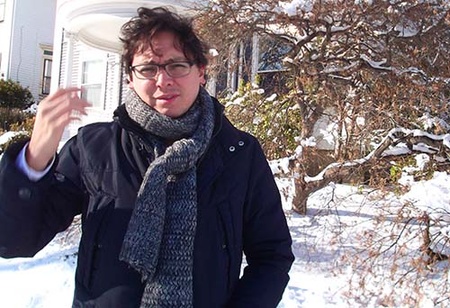
Stories that return
He arrived in Chile, where he works at the Adolfo Ibáñez University, in October 2019, when social unrest created a conflictive and stimulating scenario in southern politics. During that time, the writer has decided to venture into other stories that deal with the marginality of the Peruvian-Japanese community, a topic that he had already addressed in Ciudad de cristal , a 2009 story.
“Politics has always been present in my literary work, but it is certainly not a deliberate militancy that can be noticed in the plots of my stories. “The political for me is already inherent to the very fact of publishing.”
Make the private public. For the author, The Drowned , a story about the persecution of the Japanese community in Peru in the 1930s, is his most personal story, although there are others that take him to nearby settings, such as the coastal desert or the edge of the jungle. the one who used to travel regularly for work reasons. Having lived in New England, in the north of the United States, also gave him the landscape of snow, now present in a story like Nada contra el cielo , included in this book. “The hospitality of migration also incorporates you into new imaginary spaces,” says Carlos, who has set other stories in cities that he has visited throughout his life in England or France.
“How is my residence in Chile going to affect my writing? I don't know yet, but it will surely change something in the way I see the world."
The story Green Eyes , set in Junín, a Peruvian department, is the synthesis of what was initially going to be a novel. As he confesses, he realized that the territories of his narrative can be very diverse, but brevity is for him an inevitable call, perhaps a surviving sign of his Japanese roots, discreet and silent, which have emerged in this book of stories. . Unlike his previous work, there are many characters with Nikkei names and the book cover shows the magical inflections of origami.
Present readings
If Yushimito must be read in some way, it may be through the metaphors that flutter in many of his stories, through the symbolic density of his stories. The political is inevitably present in his stories, but more as a reading of the world, as a way of seeing it with urgent and questioning eyes. During his apprenticeship as an author, Yushimito values that brevity has allowed him to write stories, academic essays and short texts such as those collected in Marginalia (Odradek, 2015) in which he gives free rein to his reflective interest in the process of reading and writing. .
“Reading is a search and it is also a training necessity. For many years I have found in literature the instrument to make my own personal questions more complex,” says Carlos. If reading is a way of getting to know yourself, now that inner journey is taking you through other disciplines such as history, Greek and Eastern mythologies, and the history of religions.
“I read less fiction, in fact. In 2019, when I lost my father, during that rather long mourning, I did not find solace in literature, but in other ways of telling stories that have to do with intellectual speculation and psychic beliefs.”
Scientists have also become other peers in front of whom they can look in the mirror in a constant dialogue. Yushimito cites the French anthropologist Michèle Petit and the Canadian cognitive psychologist Keith Oatley to refer to the contribution that reading has in people's lives.
“Just as pilots become skilled thanks to flight simulations, the same thing happens to us as readers. If a book falsifies life, literature then gives you the possibility of living many alternative lives, sometimes in radical ways. For literature, that plane of identification is central and that is something that no other type of art provides you. In it you can suspend your own self to begin to live humbly like others.”
© 2024 Javier García Wong-Kit


